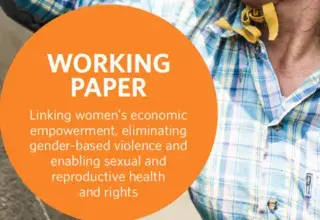Do poor people have a right to family planning?
Family planning is widely practised in Asia, but it remains controversial in the Philippines. The Congress there is debating a bill that would make contraceptives available to people who can't afford them. The Catholic Church opposes the measure. Supporters say it would save lives and give poor women more options.
Out of 3.4 million pregnancies in the Philippines in 2008, 1.9 million were unplanned. About 11 women die daily from preventable causes during pregnancy and childbirth, according to government estimates, and family planning could help reduce these deaths by one third.
This new five-minute video news report by UNFPA sheds light on the continued unmet demand for family planning services and the ongoing debate on the enactment of a reproductive health bill in the Philippines.
The video introduces Rosalena and Crisanto Boyonas, struggling parents of six children. Rosalena has started using contraception, and is now back in school.
Many think it’s time to make family planning a national priority.
The Philippine population has tripled since 1965. At current growth rate, the country will have 100 million people by 2015 and 140 million by 2040. Poor women have an average of six children, two more than they desire. Without concrete steps to check this trend, the country is unlikely to achieve its Millennium Development Goals for poverty reduction, education and maternal health.





